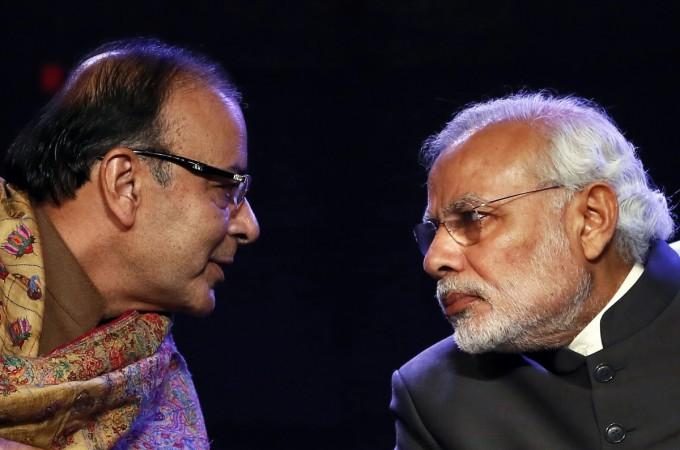
Prime Minister Narendra Modi's demonetisation was a draconian monetary shock to the nation, says the economist under whose watch India's demonetisation dealt a seismic blow to the economy over two years ago.
The November 8, 2016 midnight scrapping of currency notes of Rs 500 and Rs 1,000 denomination accelerated the economic slide to 6.8 per cent in the following seven quarters from 8 per cent during the seven-quarter period prior to it, media reports cited Arvind Subramanian, the then chief economic advisor, as saying.
Breaking his silence over Modi's controversial decision, Subramanian suggests in his upcoming book 'Of Counsel: The Challenges of the Modi-Jaitley Economy', published by Penguin, that even the post-demonetisation economic growth estimates of the government could be flawed.
"But when a shock like demonetisation occurs, that primarily affects the informal sector, relying on formal indicators to measure overall activity will overstate GDP."
"This hypothesis goes only a small way towards explaining the puzzle since any squeeze in informal sector incomes would depress demand in the formal sector, and this effect should have been sizable," he says.
"Or, there may be other, completely different explanations that have eluded my understanding of demonetisation, one of the unlikeliest economic experiments in modern Indian history," he says.
Subramanian admits he does not have an empirical view apart from the fact that the welfare costs, especially on the informal sector, were substantial.
Though Subramanian devotes a chapter to demonetisation in the book, he skirts the controversy of whether Modi had consulted him prior to the decision. But he keeps a studied silence on the decision-making process of demonetisation, according to a news report.
The omission would keep alive the allegation of some Modi detractors that the prime minister had not consulted his own chief economic advisor on the big decision.
Fell swoop
"Demonetisation was a massive, draconian, monetary shock: In one fell swoop, 86 per cent of the currency in circulation was withdrawn. The real GDP growth was affected by the demonetisation. Growth had been slowing even before, but after demonetisation, the slide accelerated," says the economist whose four-year tenure ended earlier this year in the book that could fuel a major political controversy.
"In the six quarters before demonetisation, growth averaged 8 per cent and in the seven quarters after, it averaged about 6.8 per cent (with a four-quarter window, the relevant numbers are 8.1 per cent before and 6.2 per cent after)," the book says.
The author says nobody will dispute that demonetisation slowed growth. Rather, the debate has been about the extent of its effect on the economy, he adds. "After all, many other factors affected growth in this period, especially higher real interest rates, GST implementation and oil prices."
The former advisor to Modi says demonetisation was an unprecedented move that no country in recent history had made in normal times. The typical pattern had been either gradual demonetisation in normal times or sudden demonetisation in extreme circumstances of war, hyperinflation, currency crises or political turmoil (Venezuela in 2016).








